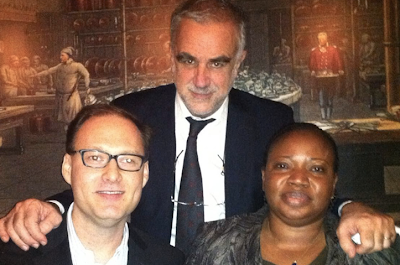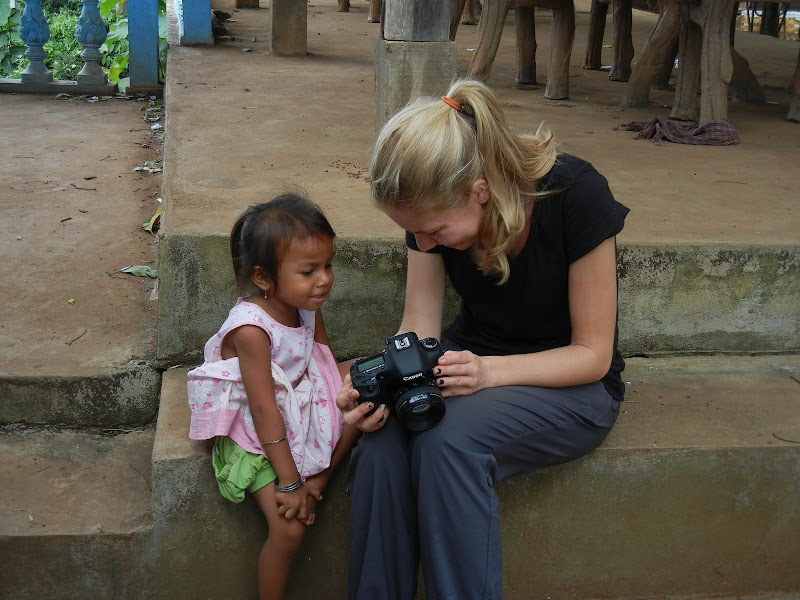Federal Treasurer Wayne Swan was in a state of utter jubilee this week as he brandished an impressive report card in front of the Opposition showing that Australia's economy is the best(est) of them all.
Stopping short of telling the media and business doomsayers and naysayers, "You can suck it", in the manner of Tina Fey, Swan was as graciously gloating as he could be under the jovial circumstances, telling us he was "somewhat surprised" to find the nation's GDP grew 1.3 per cent in the March quarter (4.3 per cent annually), putting it ahead of all other developed nations in the OECD.
"We have seven eurozone economies in recession, as well as in the UK, and many more developed economies which are crippled by unemployment," Swan said. "This result says something very special about Australia, and it says something very special about our people, about our resilience, about our hard work, and about our ability to face up to the worst that the world can throw at us."
Aw, we are chuffed!
And though our rocky shores are accosted by those seeking asylum from far-off nations via closer nations where passports are sometimes discarded, the other contentious issue of the week as brought to light by Sarah Ferguson for the ABC's
Four Corners in a program titled 'Smugglers' Paradise', we are the "island of growth in the middle of global uncertainty". We are prosperity as far as the eye can see... at least, where the sun sets in the West.
Unfortunately for Swan, who has a special place in his heart for mining magnates (the 0.01 per cent) as disclosed in earlier this year in
The Monthly, much of the growth is attributable to the western states, which may soon be home to 1,700 foreign workers if Gina Rinehart gets her way (her sway at Fairfax's boardroom table can apparently not be won with a $250 million stake).
Western Australia's economy grew 7.8 per cent in the first three months of the year, leaving the other states in its wake. Engineering and construction – most of it in the boom-boom mining business – accounted for 19.7 per cent growth over the March quarter and 53 per cent over the year.
This irksome reality, which the Labor government must contend with as it bites the hand that feeds, was buffeted by consumer spending. Household spending contributed 0.9 percentage points to growth, driven by spending on food, transport, recreation and financial services.
Shadow treasurer Joe Hockey took the good news in his stride, stopping short of conceding defeat and congratulating the government on its fiscal performance while reminding us that the Big Bears (China, America, Europe) are groaning, as Swan told us we should have a bounce in our step.
Prince Philip lost his Tigger bounce this week and wound up in hospital amidst the Queen's diamond jubilee celebrations. As Elton John sang, "I'm Still Standing", the 91-year-old was taken to hospital to receive treatment for a bladder infection. At the same time, Britain was farewelling Bee Gee Robin Gibb at a funeral in his home town Thame in Oxfordshire.
The Australian Wheat Board was again making headlines as a
report went to air on the ABC's
7:30 disclosing that the federal police officer in charge of investigating claims that the AWB paid kickbacks to Saddam Hussein's regime in Iraq blew the whistle on the mishandling and premature closure of the case.
As Burmese opposition leader Aung San Suu Kyi accepted foreign minister Bob Carr's invitation to visit Australia she issued a warning that her country's good behaviour should be approached with a degree of scepticism, advising that the suspension, not removal, of sanctions would best benefit the delicate political situation.
"This is a wisdom that we will apply to our dealings with this country," Senator Carr said. Suu Kyi amused by telling us she was "brought up on songs like 'Kookaburra Sat in the Old Gum Tree'."
PNG writer and political activist
Martyn Namorong, who publishes a blog about the issues afflicting his country, spoke to
ABC radio this week about mining, the possibility of a "Melanesian Spring" and PNG-Australian relations.
"Australia is in many ways the beneficiary the proceeds of corruption in Papua New Guinea; many of the elite buy real estate here [Australia] and their financial assets are down here in Australia, so some of us see that – because of the elite's exposure to Australia – that Australia perhaps has a greater role in holding those people accountable by, for example, threatening sanctions on the elite if they do not make decisions consistent with democracy."
Social media sanctions have been placed on Australian Olympic swimmers Kenrick Monk and Nick D'Arcy, who published a photo of themselves posing with guns on Facebook. The duo will abstain from engaging in online chit-chat until after the London Olympics.
"I think at this stage it will just serve as a distraction and I think it's really important in these last seven weeks to focus on your swimming," said D'Arcy after meeting with Swimming Australia.
"I'll be coming up against some of the greatest swimmers in the world (in the 200m butterfly), especially Michael Phelps, and if you're not on your game you don't stand a chance against those guys."
As a school in my local community deals with the disruptive repercussions of social media used the wrong way, perhaps there is merit in making an example of the pool's elite?
Girl With a Satchel


































